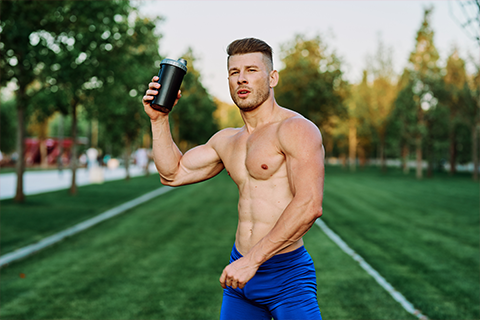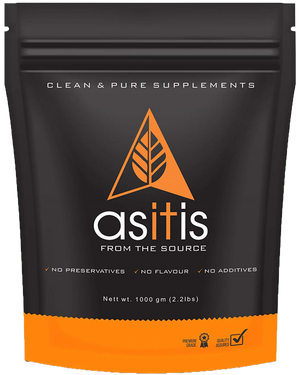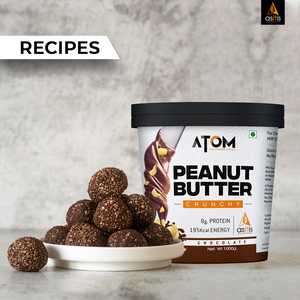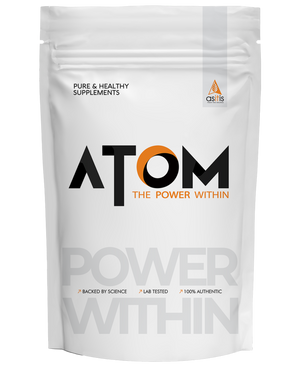July 24, 2024
Madhura Mohan
What Amino Acids Are Found In Pea Protein?
I
n recent years, plant-based proteins particularly Pea Protein Isolate has been trending. We see a sudden rise in its popularity and people are turning to Pea Protein as an alternative source of animal protein.
If we look into why Pea Protein is liked by all we can list several reasons. The big reason is people moving towards vegetarian and vegan lifestyles. People are now more aware of the environmental impact of the production of protein powders, they are now making choices for sustainable and eco-friendly protein options. Here comes, the crucial reason Pea Protein is the favourite protein – it contains all the nine essential amino acids our body needs.
In this blog, we’ll explore what Pea Protein is, discuss the amino acids found, know about the health benefits of Pea Protein and more…
Understanding Pea Protein
Pea Protein stands out as an ideal protein source for those who do not consume animal sources of protein. Pea Protein is derived from yellow split peas, it is free from soy, peanuts, gluten, lactose, and dairy and hence is termed as the hypoallergenic protein source. Pea Protein is a good protein option for those who generally face bloating issues from dairy-based protein.
How is Pea Protein Isolate Made?
At first, the little green peas are harvested and dried. The dry peas are then ground into a fine powder. The resulting powder is then mixed with water to create a slurry. During the wet fractionation, the protein and starch components are separated from the slurry. It is then subjected to centrifugation and filtration to separate the protein component. The starch component is separated, washed and used for commercial purposes. The separated protein component is spray-dried by passing it through a chamber, where water content evaporates, leaving behind the fine powder of pure Pea Protein Isolate.
Know The Complete Amino Acid Profile Of Pea Protein
The foremost feature of Pea Protein powder is that it contains a very high amount of protein (nearly 80-85%). Pea Protein distinguishes itself from other sources of protein, with its rich amino acid profile. Pea Protein contains all nine essential amino acids that the body cannot produce, so it is termed a complete protein. Unlike other plant-based proteins like rice protein and hemp protein which are low in amino acid lysine, the speciality of Pea Protein is that it is particularly high in lysine amount.
Pea Protein is rich in BCAA (leucine, isoleucine, valine) content, which makes it, an excellent protein choice for supporting muscle repair and muscle growth.
Another interesting thing about Pea Protein is that it is high in arginine and glutamic acid content. Arginine helps boost endurance by producing nitric oxide (which promotes vasodilation) and improves the circulation of oxygen and nutrients to muscles. Glutamic acid supports muscle repair, recovery and maintaining healthy immune function.
Pea Protein although contains, low amounts of methionine and tryptophan, can complement it with other plant-based protein options.
Leucine, Isoleucine, Valine, Lysine, Phenylalanine, Tyrosine, Threonine, Tryptophan, Arginine, Cysteine, Methionine, Histidine, Alanine, Aspartic acid, Glutamic acid, Glycine, Proline and Serine
are the amino acids in Pea Protein.
Health Benefits Of Pea Protein Isolate
The advantage of Pea Protein Isolate is its high protein content. Pea Protein Isolate is a more refined protein powder that offers 25-28g of protein per serving. With its good range of BCAA, arginine and glutamic acid, Pea Protein makes an excellent protein option for athletes, fitness enthusiasts, active individuals, vegetarians and vegans (who may not consume quality protein sources regularly in their diet). Pea Protein is cholesterol-free, lactose-free, gluten-free, and contains very low carbs. It is most suitable for people with dietary restrictions.
Pea Protein Supports Muscle Repair
It’s not required to explain the importance of protein in building and repairing muscles. However, not all protein is the same, regarding amino acid profile. Pea Protein with its rich BCAA content is a superhero in terms of, muscle growth and repair. An added advantage is that Pea Protein is easily digestible and consuming it post-workout makes it an excellent option to provide your muscles with the amino fuel it needs to accelerate repair and growth.
Pea Protein Promotes Weight Loss
Pea Protein is a moderate-calorie protein that is highly satiating. It helps you feel fuller for longer and reduces the calorie intake, making it easier to maintain a calorie deficit. Pea Protein helps increase metabolism and preserve muscle mass making it easier to burn calories.
Pea Protein Is Good For Heart Health
Pea Protein does not cause digestive distress, it contains low-fat, low-carb and is naturally cholesterol-free, and low in saturated fat. This makes it a heart-healthy protein choice. The plant-based protein has a low glycemic index, and hence won’t cause blood sugar spikes. The rich arginine amount of Pea Protein promotes vasodilation which helps in reducing blood pressure.
Pea Protein Vs Other Plant Protein
Digestibility: While the different plant-based proteins can have allergic reactions, Pea Protein is found to be allergen-free. While the different plant-based protein sources vary in digestibility, Pea Protein is found by studies to have superior digestibility making it a convenient option for post-workout recovery.
Texture & Taste: While the different plant-based protein sources like soy, rice, and hemp have dominant/strong taste and gritty textures, Pea Protein is found to have a smooth texture and a neutral flavour profile making it convenient to add to your recipes.
Amino Acid Content: The most impressive thing about Pea Protein is its amino acid profile. Pea Protein has an impressive balance of essential amino acids. Comparatively, Pea Protein is particularly high in BCAA content, lysine and arginine amounts when compared to other plant-based proteins.
How To Incorporate Pea Protein Into Your Diet?
Pea Protein has a neutral flavour and smooth texture which makes it suitable to be added to your smoothies, soups, and oatmeal for a protein boost. Pea Protein can be used in baked goods like rotis, muffins, pancakes, protein bars, idli, and dosas to boost the protein content of meals. Versatile protein blends seamlessly into your dishes without overpowering the taste.
Choosing The Right Pea Protein Supplement
Read the product label carefully. Choose a supplement which does not include sugar, artificial additives, enzymes, preservatives or fillers. Your Pea Protein should be non-GMO, 3rd party lab-tested for quality assurance. Buying your supplement from a reputable brand is very important. Choose your supplement from a brand that has a good reputation and track of offering clean and pure supplements.
Whether you’re looking to maximize your gains in the gym or need fuel to support your active lifestyle, Pea Protein could be the missing piece to achieve your goals….
If you’ve not tried it yet, why not unlock the power of Pea Protein Isolate and take your training to the next level?...
 Follow our Instagram page for the latest updates: badalkhudko
Follow our Instagram page for the latest updates: badalkhudko

 Follow our Instagram page for the latest updates: badalkhudko
Follow our Instagram page for the latest updates: badalkhudko














Leave a comment